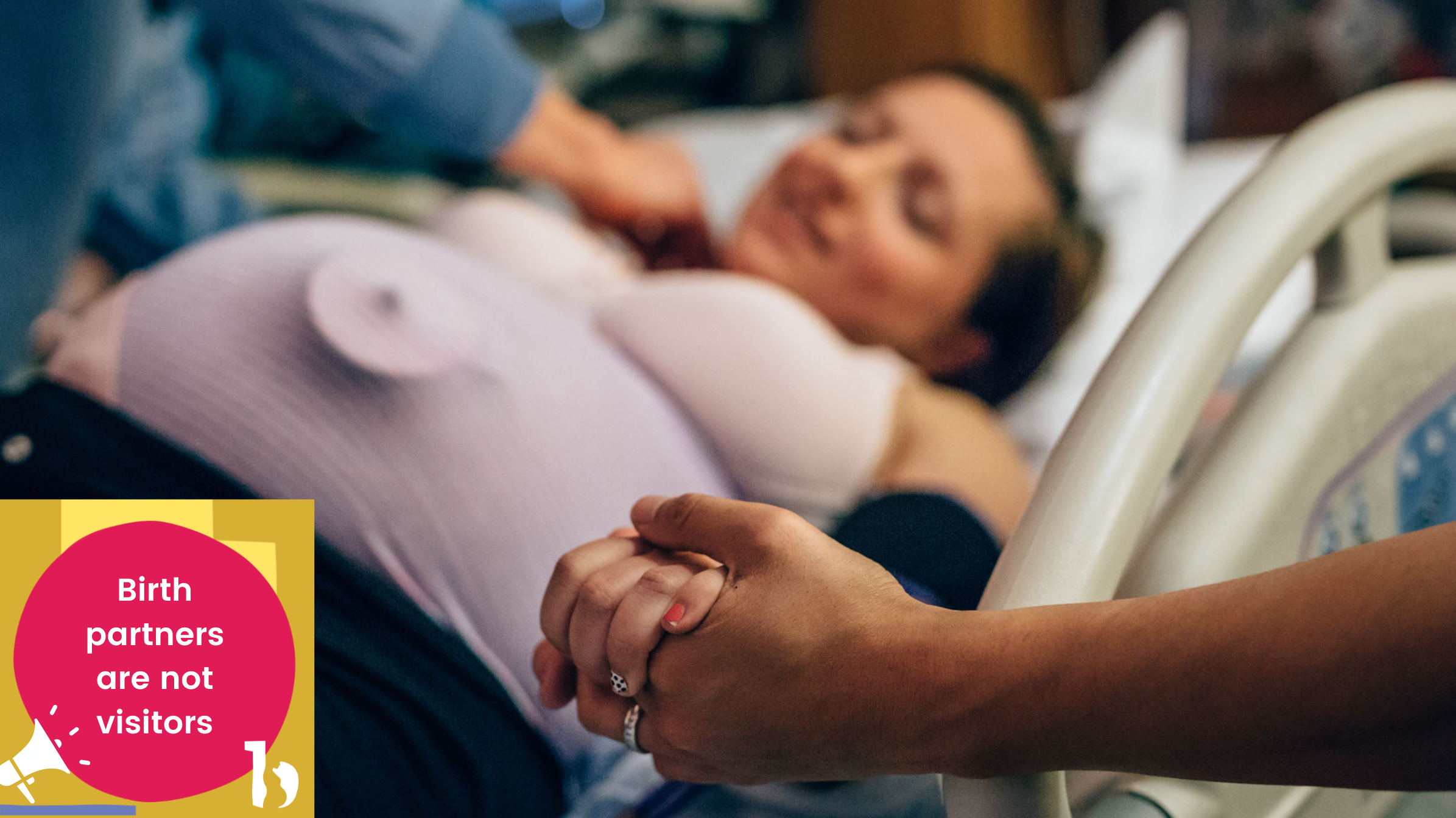Birth partner restrictions

A birth partner’s role for the physical and emotional wellbeing and safety of women and birthing people in the hours before and after childbirth is significant, particularly for women and birthing people who experience extensive discrimination in maternity settings because of systemic racism, ableism, and/or homophobia, and who already feel a sense of distrust to the healthcare system as a result.
Birth partners are not just relationship partners. They can be doulas or childbirth supporters, emotionally supportive friends or family members and they can also include other children in the family. A birth partner of choice is a vital lifeline for women and birthing people during a major life altering event. This is even more significant for migrant women and birthing people without wider family connections in the UK, as well as single parents.
In healthy, consensual relationships, romantic partners’ and co-parents’ presence in the immediate hours pre- and post-birth are also a crucial aspect of family bonding and in establishing a secure attachment for the newborn child.
Human rights law
Article 8 of the European Convention on Human Rights protects every person’s right to make choices about their private life and this includes choices about birth partners. (See our factsheet Human Rights in Maternity Care.) The right exists and so the starting point should be to uphold it – women and birthing people have the right to choose who they want to give birth with.
Some hospitals are restricting birth partners being there
During the three years of the height of the pandemic, questions about birth partner restrictions consistently made up the highest percentage of monthly queries to our Advice service. As COVID regulations all ended, the NHS was also expected to end specific restrictions on rights related to the spread of COVID.
The current intelligence coming into Birthrights from women and birthing people however suggests that COVID has reset the benchmark for how and why birth partners are restricted, with many Trusts continuing to adopt strict birth partner policies which they’ve not reviewed since the pandemic years. We wanted to find out more about this issue and so in March 2024, we created a short survey inviting women and birthing people to share their experiences of birth partner restrictions on postnatal wards across the UK.
We received 63 survey responses which, combined with what we’ve heard coming through our Advice service, tell us that:
- The majority of survey respondents weren’t given a reason for the partner restrictions. In some cases, respondents were informed that the guidelines had been effective since COVID. In other instances, the ‘safety of staff’ or the ‘safety’ or ‘modesty’ of other women and birthing people on the ward, was cited as the reason for the current partner restrictions.
- Partner restrictions were not communicated properly before admittance to the postnatal wards. Many survey respondents found out about the restrictions at the last minute either just prior to, or just after, giving birth. Some respondents who knew about the restrictions beforehand only knew from their own research on the hospital’s website and/or social media.
- Most survey respondents told us there were partner restrictions in place for overnight stays. One person stated that their partner was only able to visit between 2-4 pm, and another told us that there was a total restriction in place (no visitors or partners allowed at all).
- The types of restrictions enforced varied between different hospital Trusts. These included:
- restrictions to partners during an induction process
- only one designated partner being allowed
- one designated visitor allowed for limited hours (and only the same person allowed to visit each time)
- only adults allowed– no children
Results also showed that these restrictions were applied in the same manner and did not depend on how much space there was on the ward, or whether there was a side room for birth partners available. Based on what we hear through our Advice service, we also know that women and birthing people experience restrictions to having partners with them in other maternity settings as well, such as:
Long-lasting psychological impact
Many women and birthing people who have reached us have used words such as “horrific”, “traumatic” and “heartbreaking” to describe the impact of partner restrictions on them. They’ve felt “scared” and “stressed” after being left alone on their first night after giving birth as they were already exhausted and, in many cases, “traumatised” (either following a traumatic birth experience and/or because of an issue with the newborn’s health.)
These experiences show us that birth partner restrictions cause considerable distress and long-lasting impact on the mental health and wellbeing of women and birthing people.
“I had a c-section when I gave birth to my first baby and after the operation I was all alone. I was extremely upset and had no idea what to do because it was my first experience. My body was in pain and I couldn’t lift my baby, hold her or feed her without any help but the hospital was understaffed at the time. As a first-time mom, in that most vulnerable time of my life, I was left without my partner.”
– Service user feedback
Resources
We’ve developed some resources for women and birthing people who are impacted by birth partner restrictions, including an email template for your to challenge any restrictions in place, as well as some important information for healthcare professionals who are working to support women and birthing people – including legal obligations to uphold human rights law. Click the buttons below for more information.
